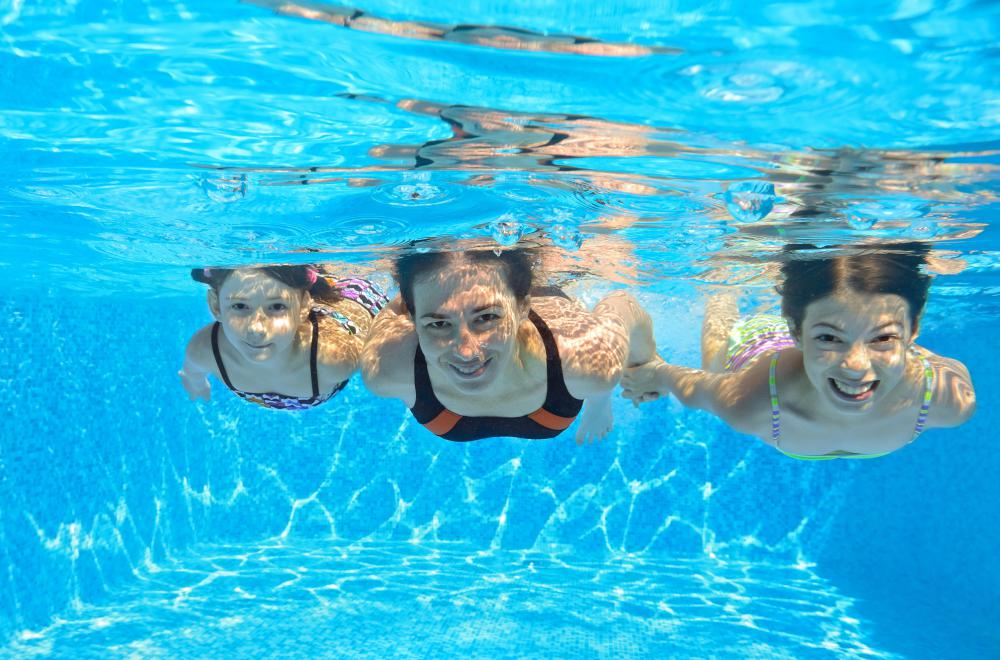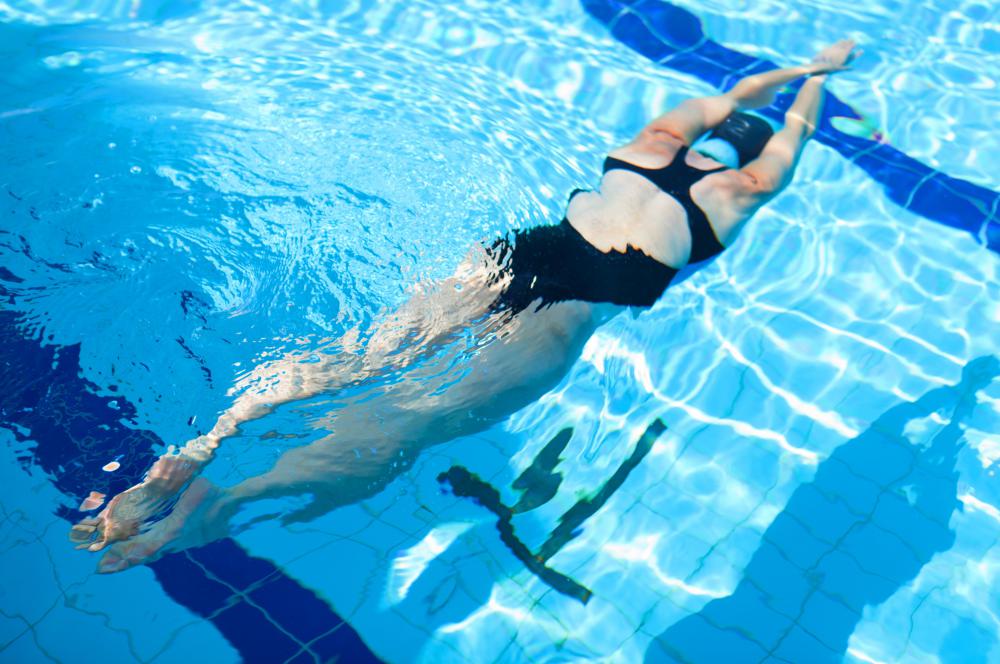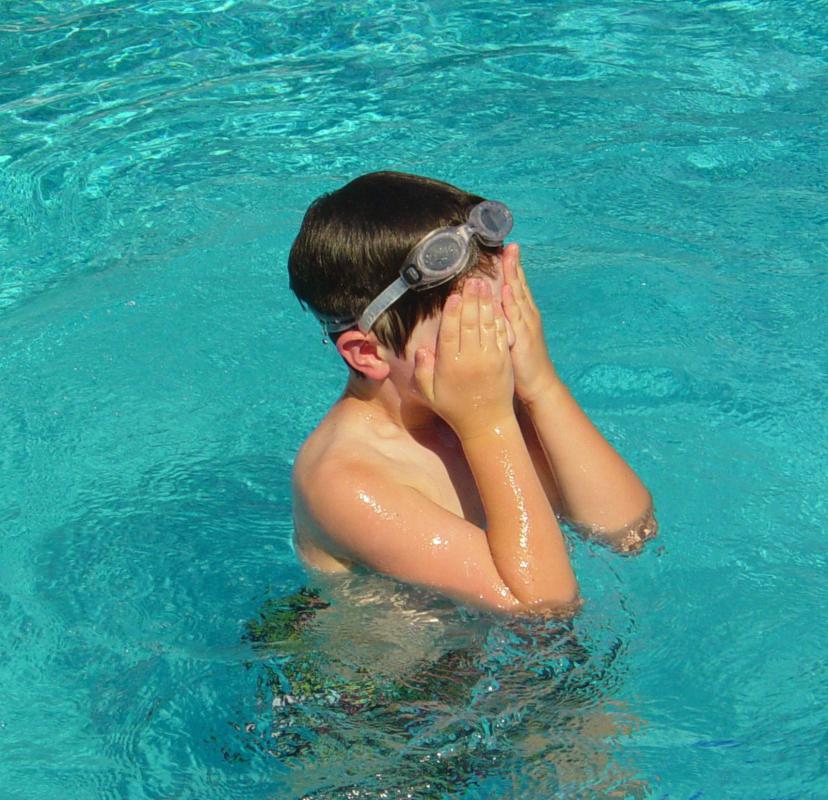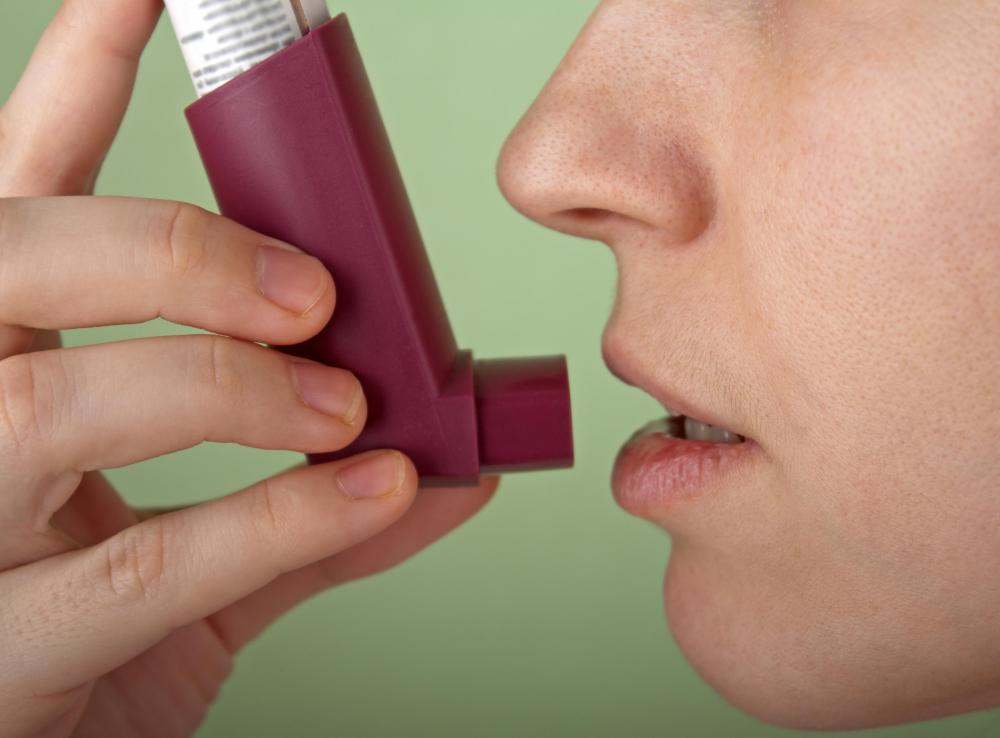At HomeQuestionsAnswered, we're committed to delivering accurate, trustworthy information. Our expert-authored content is rigorously fact-checked and sourced from credible authorities. Discover how we uphold the highest standards in providing you with reliable knowledge.
What Are the Different Types of Swimming Pool Chlorine?
One of the most important tasks to perform when owning a pool involves ensuring the chemical levels in the water are properly maintained. Chlorine is the most common pool chemical in use, as well as the most versatile. It not only helps to keep pool water clean, but it also helps to keep the water sanitary as well, reducing and preventing algae growth and other unwanted water and surface problems. The are several basic types of swimming pool chlorine, including liquid chlorine, tablet or stick chlorine, granular chlorine and powdered chlorine.
Liquid chlorine is the most common type of swimming pool chlorine used by pool owners with high-capacity pools. Liquid chlorine disperses quickly once the pool pump begins to run, rapidly spreading through the entire water supply. It can also be used in larger concentrations for shocking or cleaning the pool water on a less frequent basis.

Tablet-form swimming pool chlorine can be used both in large pools, as a supplement to liquid chlorine or in small pools as the primary source. When liquid chlorine is being used, the tablets will often be placed into one or more floating dispensers, which allow the chlorine to gradually dissipate into the water over a period of time. This particular type of chlorine can also be purchased in stick form, along with custom floating feeders designed to handle the stick format, as opposed to the tablet design. Dispensers can hold anywhere from a few days' worth of chlorine tablets, as seen in the floating dispenser design, up to several months of chlorine, as found in the higher-end fixed automatic dispensers.

Granular swimming pool chlorine works in much the same way as tablet chlorine. Instead of relying on a feeder, the granular form of chlorine is introduced directly into the pool. Due to its quick-dissolve nature, granular chlorine will typically be fully dispersed before reaching the bottom of the pool. Granular chlorine is most often used in larger quantities than standard tablet chlorine in order to shock the pool, not just help maintain proper chlorine levels.

Powdered chlorine, also known as powdered shock, is designed specifically for heavy cleaning applications. While liquid chlorine will generally be added to the pool every few days and chlorine tablets restocked every week or so, powdered shock swimming pool chlorine is typically used on a monthly basis. As the powdered shock hits the water, a chemical reaction is created, which creates a large dispersion of the chlorine in the water, producing a cloud-like explosion beneath the surface.
AS FEATURED ON:
AS FEATURED ON:
















Discussion Comments
I really associate the smell of chlorine with summer days at the local swimming pool. I guess they had to keep the levels high, because so many people used the pools and the kids, in particular, could be pretty gross about it.
I don't think you need to use that much at home, though. I think my hair actually became lighter when I was a kid simply because the chlorine in the public pool bleached it out, I was in there so much.
@indigomoth - All the different pool chemicals have different advantages and disadvantages. Some are going to work better in different climates and in different kinds of swimming pools. Some are way more expensive than others.
Chlorine tends to be fairly cheap and it's also pretty safe. As long as you make sure your swimming pool chlorine levels aren't too high, you shouldn't be having bad reactions on your eyes or skin (unless, of course, you have an allergy or something).
There are different kinds of chlorine as well and I would investigate all the different types before writing it off altogether.
Personally, I don't like using chlorine for a swimming pool at all now. There are plenty of other kinds of chemicals that are better for your eyes and will keep the pool just as clean.
If you are thinking about getting a pool, or maybe just want to see some other options, I would do some research on other kinds of swimming pool supplies.
Post your comments